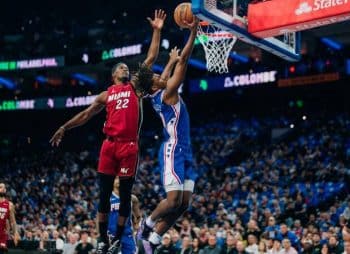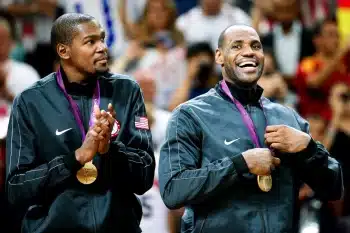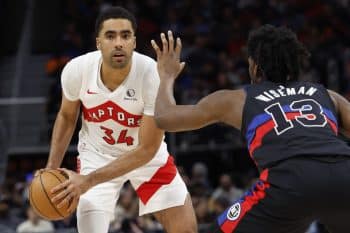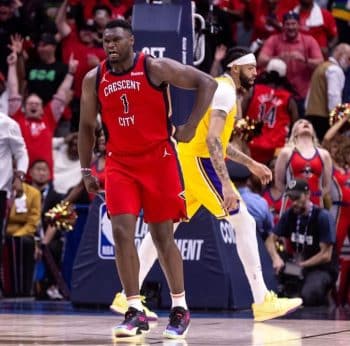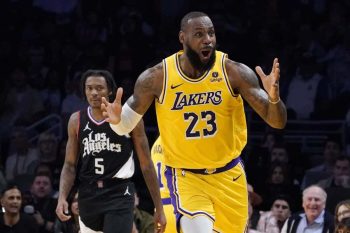NBA
NBA Daily: Trade Season Has Officially Begun
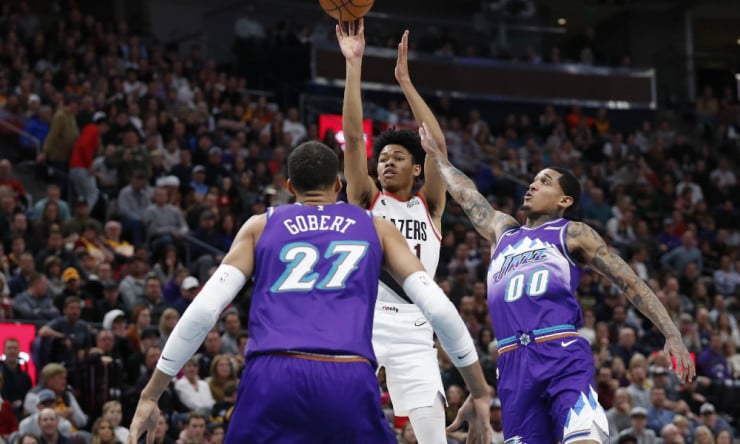
Should it feel more or less satisfying that this happened at the pinnacle of Christmas time?
We’ve all been waiting patiently for the NBA’s trading season to start. Sadly, after a season where it didn’t take long for significant roster moves to materialize, it took two whole months for someone to finally make some changes to their roster. This was also the first trade we’ve had in over five months, with the last one being the Chris Paul-Russell Westbrook deal. If we’re being completely honest, the NBA, and really professional sports in general, become more entertaining when teams make moves.
So in some ways, this felt like a drought. As fun as this season has been, with the NBA’s newfound parity and whatnot, we were all craving the first chess piece to be moved. It came later than usual, but we got it, and it’s not some throw-away deal that can be easily written off. Monday night, the Utah Jazz agreed to trade Dante Exum and two second-round picks to the Cleveland Cavaliers for Jordan Clarkson.
This one, even if it didn’t involve a star, could actually play a role in how both of these teams do either in the short-term or in the long-term. It probably won’t be the most high-profile trade we see this season, but it is a deal we should look into.
The Cleveland Cavaliers a.k.a. The Utah Jazz’s support system
Let’s just get this out of the way since it’s pretty much become an NBA meme since this trade was finalized.
Was there some sort of favor that Dennis Lindsey did for Koby Altman? Because, since early 2018, it seems like Altman always comes through for Lindsey when the latter needs some sort of upgrade for his roster.
When the Jazz needed a tough perimeter defender/shooter, the Cavaliers gave them Jae Crowder. When the Jazz needed a dead-eye shooter, the Cavaliers gave them Kyle Korver. When the Jazz needed a bench scorer, the Cavaliers gave them Jordan Clarkson. Miraculously, none of these players came at the price of a first-round pick. It’s the same formula. When in doubt, Utah always looks to Cleveland to aid their playoff hopes by adding a substantial albeit not special piece that conveniently fills a hole for them.
And who’s to say it’s going to stop anytime soon? The Cavaliers still have a roster full of solid vets that any playoff-hopeful team could use. If anyone could come calling for one of them, would it surprise you if it yet again was the Jazz?
Whether it’s a trade with Utah again or not, this trade could be a telling sign for what direction Cleveland is headed.
Is this the beginning of Cleveland’s teardown?
So who was the moron who said Cleveland wasn’t blowing up their roster? Oh right…
When that article was published, the Cavaliers were 4-7, and they were putting up some good fights in that time. Since then, they’ve fallen to 7-22, they have the league’s worst net rating, the players are already tuning out head coach John Beilein, and it’s showing on the court.
Looks like Tristan Thompson and John Beilein are getting along great pic.twitter.com/fNoPK6ghaj
— Chase Shannon (@chase_shannon) December 13, 2019
In recent weeks, there were rumblings that the Cavaliers were planning on trading some of their rotation guys to put their rebuild on full throttle. Trades like this could show that those rumblings were more than smoke. They could also show to be nothing more than a mere coincidence. The Cavaliers have definitely made some moves that have signaled that they are starting over, but it hasn’t gone at as fast of a pace as many thought it would.
Altman has quietly done a savvy job accumulating draft assets over the last year-and-a-half. Last year, he got a pair of first-round picks for the likes of Kyle Korver and George Hill. It may have come at the cost of bringing in additional salary to the team, but getting good value out of guys who had no future in Cleveland past last year is something competent general managers do.
This deal was more of the same. While no first-rounders came from trading Clarkson, they traded for a young player who, for what he’s being paid, is worth taking a flyer on. For all his raw ability, Exum, when healthy, can bring defensive aptitude to a team that’s been desperate for just that for years now. There was a reason why Utah kept him for so long. The reason why the traded him was that his slow progress could no longer fit with their lofty goals.
Plus, they acquired Exum for someone who, like the others who have been mentioned, wasn’t a long-term fixture. Cleveland’s not going anywhere this year, and probably won’t be going anywhere for the next few years, so not much hurt can be done from a trade like this from their point of view.
We won’t know for sure if Cleveland really is tearing the whole thing down until we see Kevin Love and Tristan Thompson wearing different uniforms. And since Mr. Altman has been making these types of moves since the fall of 2018, it wouldn’t really count as the beginning now would it?
While this trade shows that Cleveland is being patient with what it’s building in the long-run, it’s showing the complete opposite for its trade partner.
Utah was done waiting
The Jazz really believed in Exum. They were patient with him. They invested in him. They gave him so many chances to prove himself. Through the years, Exum dealt with his fair share of bad breaks that weren’t his fault, but this trade signaled how Utah felt about him in the end — he wasn’t their guy.
The term “giving up” in this sense sounds kind of harsh and may not be entirely accurate. Exum had his flashes of productivity in Utah. In an atmosphere with a lot more pressure, no doubt. In their case, they couldn’t wait forever for someone who only on occasion showed himself to be the player that they wanted him to be. Five years after drafting him, the Jazz just could not go through the same exact story anymore. They couldn’t wait for him to recuperate, find his footing on the court, then get hurt as the cycle repeated itself. Not with the bar they set for themselves this year.
They want to be on the same level as the Lakers and the Clippers. They want teams to be scared of them. They want a title. These dreams of theirs have been weighed down by their own issues. Those have been covered aplenty this season, so let’s just cut to the chase. By trading for Jordan Clarkson, Utah confronted one of the team’s larger issues they’ve had this season — scoring in the second unit.
Clarkson comes with his warts. He’s never been exactly the most efficient shooter — shooting 44 percent for his entire career — but there is hope for him yet. This season, both his true shooting percentage — 58 percent — and effective field goal percentage – 53 percent – are at the highest they’ve ever been in his entire career. When you look at his career stats, Clarkson has always been best suited as a spark plug on the offensive end. With his shooting percentages as good as they’ve ever been, he should be what Utah desperately needs.
But the warts don’t end there. Throughout his six-year career, Clarkson has only been on one team that qualified as “good” — the 2017-18 Cavaliers — and that was for less than half of a season. Even in that time, he found himself in-and-out of that team’s playoff rotation. There’s a fair argument that his numbers have never helped a winning team. In his defense, he started his career with the hapless post-Dwightmare Lakers then was traded to the Cavs just before LeBron was skipping town again. The knock on Jordan Clarkson has been that his numbers haven’t translated on a winning team. Now that he’s on a team that desperately needs a man with his skill set, we’re going to find out who the real Clarkson is.
Trading Exum for Clarkson was a deal that Utah had to make given their issues. However, getting Clarkson solves potentially only one problem on a team that has a plethora of them. The Jazz still need to confront their lack of productivity from Rudy Gobert’s backups. They also have to wonder how long of a leash will they give Mike Conley Jr. before they consider shipping him out too.
By trading Exum — their most polarizing prospect in franchise history — the Jazz have made it clear that they will do whatever it takes to get them to a championship level. If their transactions following this trade are indicative of anything, it’s that this may not be the last move they make before Feb. 7.
Well, that was fun. Trading season just adds so much more pizzazz to the regular season that it’s hard not to talk about every single one that happens. Especially in a case like this where it took so long for something to actually happen.
They say better late than never. Well, now that later has finally arrived, maybe this is just the first of many dominos.
